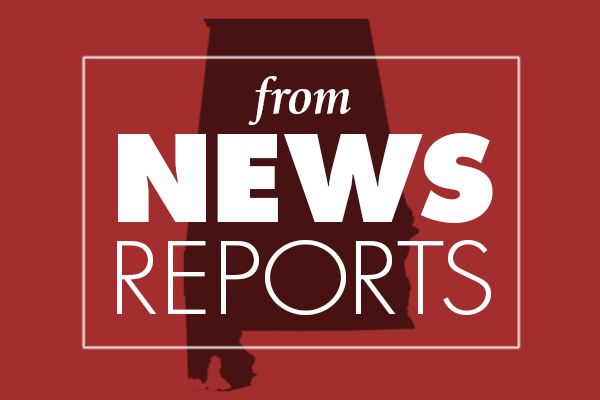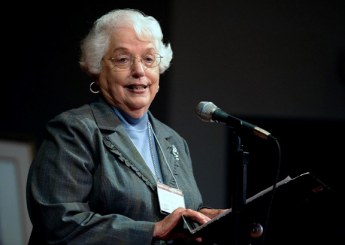June 22, 1819, was a momentous day for Baptists in the Michigan territory. That is the day the first Baptist church in the territory was constituted with 17 members. The location was the Pontiac territory.
At about the same time, Baptists were starting missions points in the territory focused on the Indians. In 1822, Isaac McCoy, a missionary with the Baptist Board of Foreign Missions for the United States from Kentucky, opened a school in Niles to work with the Pottawatomies. In 1824, a church was organized there with 26 members, some of them Indians.
While Indian work grew in the western part of the territory, Baptist churches were also springing up on the eastern side. Onestes Taylor organized Stoney Creek Baptist Church in Oakland County in 1824. Elkanah Comstock, known as Michigan’s first Baptist pastor, served the Pontiac church for 10 years and helped organize a Baptist church in Troy in 1825 and another in Farmington in 1826.
These four churches came together in 1827 to form Michigan Baptist Association. The work grew quickly and St. Joseph River Baptist Association was formed in 1832, followed by Washtenaw Baptist Association in 1835. In 1837, 27 Michigan Baptist churches came together to form the Michigan Baptist Convention.
The convention had little contact with the Southern Baptist Convention (SBC), which was formed in 1845, for more than a century. However, Southern Baptist work began in Michigan in 1910, when Memorial Baptist Mission was organized in Jackson. Later known as Gorham Street Baptist Church, the congregation affiliated itself with the Illinois Baptist State Convention, which was associated with the SBC.
In 1934, Antioch Baptist Church, Roseville, was organized with 11 charter members. A decade later, the church affiliated itself with Graves County Baptist Association in Kentucky. Monroe Missionary Baptist Church, organized in 1938, affiliated itself with Cumberland Gap Association in Tennessee.
At the time of the organization of Motor Cities Baptist Association in 1951, the first Southern Baptist-related association in the state, Baptist churches in Michigan were affiliated with associations in Illinois, Kentucky, Tennessee and Arkansas.
Southern Baptists in Michigan at first attempted to affiliate themselves with the Kentucky Baptist Convention. But when Kentucky Baptists met in annual session, they declined to accept the new applicant. The main reason cited was the distance between Kentucky and the petitioning churches.
After the rebuff by Kentucky Baptists, Michigan Southern Baptists turned to Arkansas Baptists, who were not as hesitant. Their state convention first dropped the reference to its boundaries being the state of Arkansas and then voted to accept Motor Cities Association.
In the 1950s, an abundance of jobs caused Michigan to shine like an economic beacon to many Southerners dealing with a depressed agricultural economy and lack of jobs. By the thousands, families migrated from their farms to the factory lines of Detroit and the surrounding areas.
Michigan Southern Baptists were there to greet them. Stories are told of church members looking for license plates from the South and then following the car home in order to invite the occupants to church.
Seeking a place to worship that reminded them of home, these “dissatisfied Southerners,” many of them Baptists, also started several churches that still exist in Detroit and the surrounding suburbs, said Ted Stephens, Cooperative Missions Ministries team leader for the Baptist State Convention of Michigan (BSCM).
The only problem, according to Stephens, was that many church planters only reached out to other people from the South. They were open and inviting to Southerners but did not reach out to native Michiganders on a broad scale. As those church founders died or retired and moved back to their native South, church rolls slowly dwindled. Today Stephens said there are churches built to seat 300 to 400 for worship that now have congregations of 10 to 15 members.
The lack of outreach and eventual loss of members, coupled with the recent economic recession, has led many Michigan churches into financial crisis.
“This is a tough time for everybody,” Stephens said.
The number of Southern Baptist churches and missions in Michigan hovers between 250 and 300, representing about 37,000 members. About a third of these churches average less than 26 in Sunday School attendance. Approximately 20 average more than 200 weekly in Sunday School.
Other Baptist groups represent about 200,000 members throughout the state, half of whom are National Baptists. American Baptist Churches in the USA is a large Baptist group with about 60,000 members. The North American Baptist Conference, the Conservative Baptist Association of America and the Baptist General Conference are represented around the state as well.
Catholicism is the dominant religious affiliation in the state, numbering more than 2 million adherents. In recent years, however, churches and schools in metro areas of the state have closed. In the Detroit-Dearborn area, the Muslim population is more than 80,000, representing perhaps the population most hostile to the gospel, Stephens said.
But in a state where an estimated 8 million people are lost, sharing the gospel remains a top priority, Stephens said, thanks to help from churches around the United States who contribute to the Cooperative Program.
“Our missionaries and churches do not have a lot of funds, so we depend on the North American Mission Board (NAMB) so much,” Stephens said.
In fact, Stephens said 85 percent of the BSCM budget comes from NAMB.
“We couldn’t begin to do what we do without them,” he said.





Share with others: